In Conversation: Designer Poppy Lissiman with MONA’s Liana Rossi
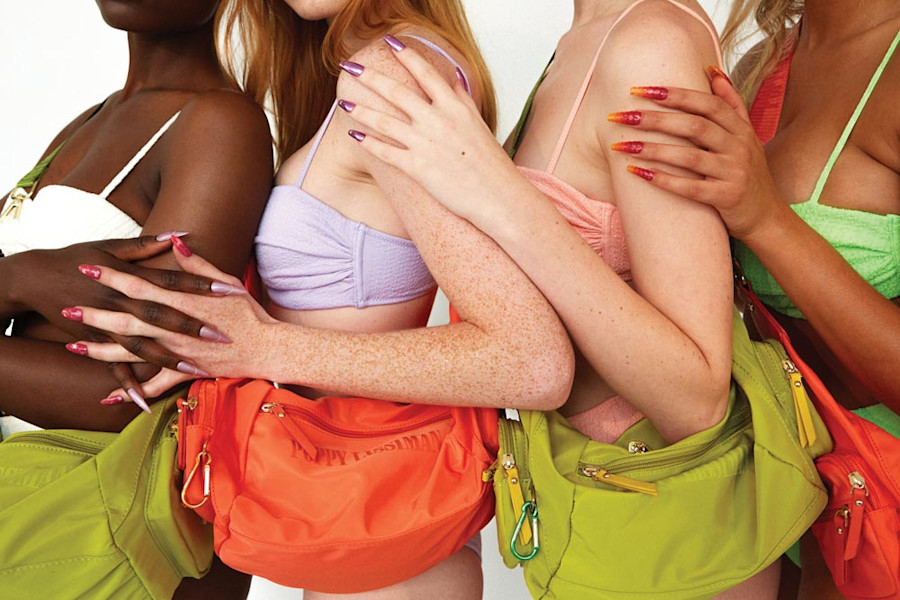
Poppy Lissiman is an Australian-born designer. She started her self-titled label in 2008 before opening her first stand-alone store in 2011. In 2014, she relaunched her label exclusively as accessories, followed by her first collection of sunglasses in 2015. Liana Rossi and Poppy first met in 2013, and have been close friends ever since.
Interview: Liana Rossi, Museum of Old and New Art.
*Phone Ringing*
Hello?
Oh good it’s working
Sorry that’s my fault, I hate FaceTime so I don’t have it activated.
I didn’t know that was an option. I thought once you were in the iPhone world they just forced that upon you.
It’s good we’re doing this now because I’m getting hair extensions put in in about an hour.
Ok, let’s dive into this so you can go on your merry way. When I was first asked to do this I thought it was funny and awesome, but now I’m petrified.
Me too because I never do interviews. I only do them over email because I don’t like not having control over my answers.
I feel like the best moments of an interview happen off-script. But I get you also want to protect yourself.
Controlling the narrative is important. There is such an anxiety over being misquoted and having something come out that’s completely misunderstood.
Well, how are you?
I’m good. I’m good, I’m good, I’m good. I’m just in the office chipping away at work and wedding planning and then getting hair extensions, so really important things.
What are you working on right now?
I want to launch a new product line this year and the one that made the most sense (as a continuation of all the other products I do) was jewellery, but it turns out I don’t know a tremendous amount about it. So at the moment I’m just researching, looking at factories and educating myself on how it all works. I know in my head how I want it to look so I’m working with a freelance 3D designer in Sydney and learning all the techniques. I haven’t made a single sample yet, so very early days.
You’re going to own people from the shoulders up by the end of this. Where are you now?
I'm in Perth, or more specifically Fremantle. My parents live here and my head office is here too.
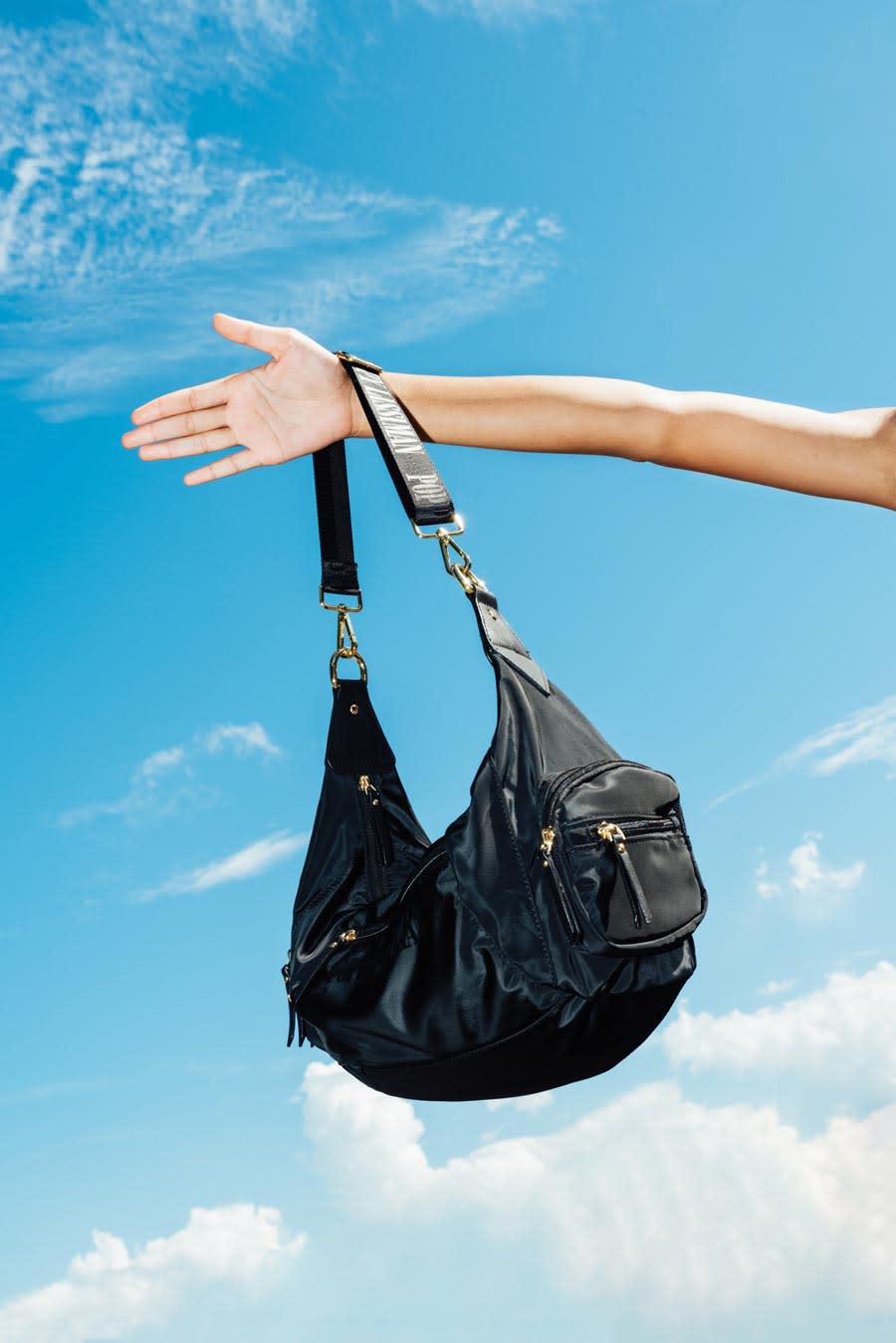
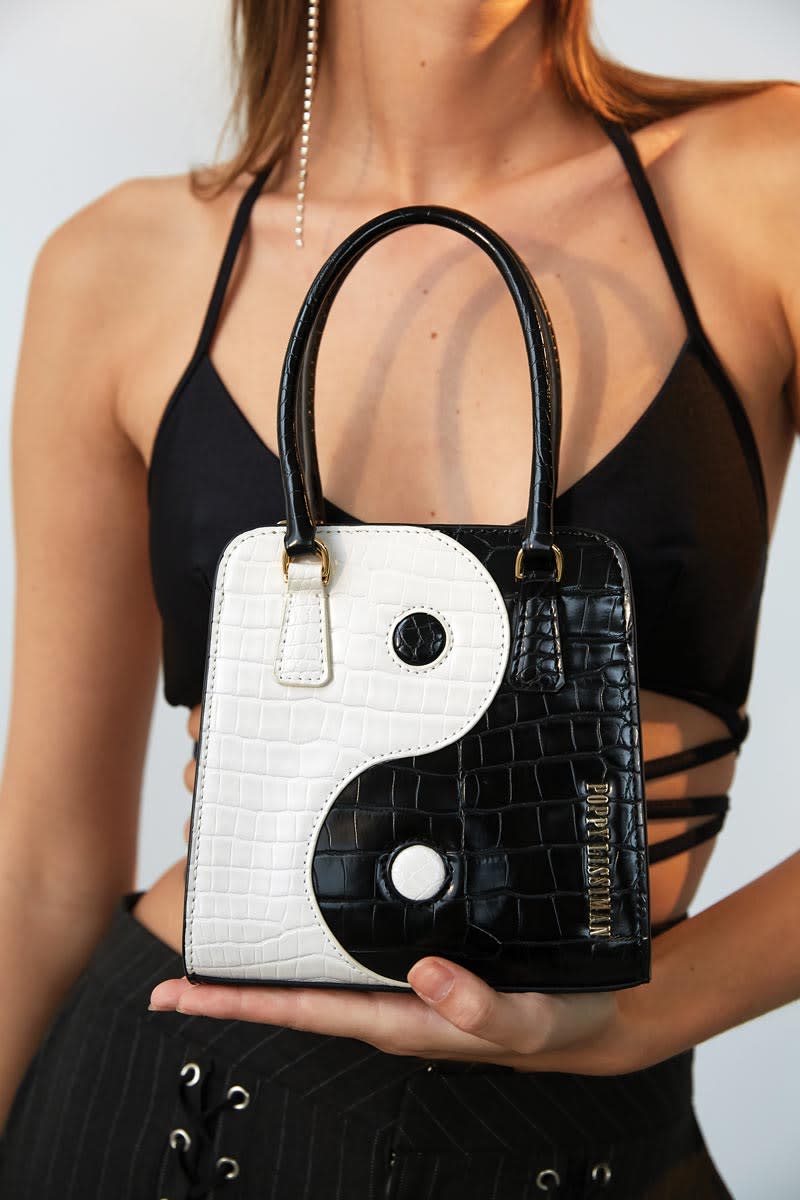
So for anyone who doesn't know the beginning of your story, it started with the shop in Claremont right?
The beginning of it was probably four or five years prior to that. I started my own label in 2008 and did clothing through the very traditional retail model; seasonal collections shown wholesale to buyers. This was before social media, even online shopping was still in its early stages.
I did that for the first few years and then opened the store in 2011 where I sold my brand plus other brands like Opening Ceremony, Le Specs, Mara Hoffman, Self Portrait—mainly brands that weren't available in Australia. I transitioned to making accessories because there was one season where we just didn’t buy enough, so I started making some bags to fill a gap in the store and they did really well.
I always thought that it started with the shop.
The shop was the end goal. When I started my brand in 2008 I was 18 and had taken on a personal loan at the bank. By no means did I have enough money to start a store but that was the end goal. So I was like ‘I’ll just start a label, make heaps of money from that, then use that mon- ey to start a store’. Which obviously wasn’t the case in the end because I got the store and it was a fucking nightmare and I’ll never do it again.
But that was the 2008 dream, wasn’t it? Considered bricks and mortar retail showcasing brands in interest- ing, experiential ways.
Yeah exactly, concept stores. It was a great learning curve but I don’t think I’ve ever been more stressed. It cost around $12K a month just to keep the doors open, and here I was in my early 20s with all these financial worries. I was worried about paying my staff, paying the rent, paying other brands for stock I had committed to purchase. These days I don’t produce anything unless I can afford to do it. There is less forward thinking, but because I’m my own business and own online store I’m not having to commit to all these other extra financial burdens. It’s much more manageable.
Was there a youthful naïveté attached to be able to just jump into something like that?
Totally. And when it comes to big creative or business decisions today I genuinely envy the person I was then, because I had such a bold ‘I can do anything’ attitude. Obviously I made a lot of mistakes along the way and some of them were very expensive mistakes. But I do miss not having that same attitude to some of the things that come my way now.
It’s funny how we evaluate something like losing a lot of money retrospectively. Once you think about it in terms of what you learn being a businesswoman and the way it comes out eventually, it’s very valuable.
Yeah definitely. As much as some of those were like ‘expensive decisions’ I don't consider them total mistakes. What I’ve been able to learn and channel into my business has made it what it is today.
Yeah, when I helped launch an online magazine in 2011 we had an office space on Oxford Street in Sydney. There’s no way I could jump into something like that now.
It’s quite reckless. Now the landscape has changed because the amount of people competing for the same slice of the pie is so much bigger. To be honest, if you set up a bricks and mortar store now you might do quite well because there aren’t as many of them. The pendulum swings from one to the other.
There’s a few things I want to ask you about, but I’m interested in what being from Perth has done for you, creatively. We both know a lot of great designers from Perth, probably as many as I know in Sydney, and I wonder to what extent geography has to do with it.
There's definitely creative people here, no doubt about that. The West Australian Department of Culture and Arts, which is our government body, is incredibly supportive of people in the arts and has a really generous arts funding system. Everyone's very supportive, and the fashion industry here is made up of really nice, beautiful, support- ive people. It's not like any kind of stereotype that people might have about the fashion industry. I’ve got customers that buy my sunglasses who used to buy my clothes eleven years ago.
I feel like (when I relocated to Hobart) I had to move to the edge of the earth to get closer to the centre of it; it’s funny what taking yourself out of the major cities can do. But people know your name now. I remember when I used to have to write your name down on napkins for people I met in public, and now I go to the grocery store and someone will say ‘I love your Poppy Lissiman!’. How do you think the role of social media has changed that conversation?
I mean it's changed so much because what you know, everyone knows. Brands have to be in a position where they need to be more careful in what they're putting out there and how they're presenting themselves to the world.
Because of Instagram and social media in general, you’re able to have brands where, if you didn’t know them personally, you would assume they were from L.A or New York. You can design the products here, then commission photo shoots in Hawaii or Paris or wherever.
There is such an incredible pool of really talented women that you'd be crazy not to constantly work with them.
It’s so saturated now. But how do you capture new customers without alienating your existing ones?
You need to be spinning so many plates at once. It’s no longer about like ‘let’s just put this picture online’. There are many other things you have to take into consideration, and the playing field is constantly changing as well.
People have more options, but not as much brand loyalty too.
But on the plus side it means people are so much more willing to take a chance on a brand they've never seen before. Ten years ago if you saw a random brand on the internet you wouldn’t buy it and could be thinking am I going to get scammed if I send this person my money. But right now there is a girl making beaded bracelets on her floor in Boston and I’m going to buy one of them no qualms. We’re trying new things and are so much more willing to support the little guy, which is cool.
For me I think I loved working in a shop probably more than anything else I've ever done in my life.
Right? A simpler time, stresses were much lower. Except when you own the shop.
When we look at some of the most powerful brands, particularly in Australia, they are founded by individuals who are so paramount to the brand’s story.
There’s definitely a trend when those founders leave, just how little value many customers hold in the brand. I had that with my own store as well. It was never my intent to work there all the time but on the days where I wasn’t on the shop floor we didn’t make anywhere near as much as when I was, because people just wanted to shop from me. But I couldn’t work every day because then I wasn’t designing and making stuff. But people would pop their head in and go ‘oh, Poppy isn’t here? I’ll come back tomorrow’. It’s not the best business model.
It’s not super sustainable for one person to be the fact of an entire operation.
Yeah, I was just reading an article in The Economist on the new brand of CEOs, where thanks to the Elon Musk’s and Bill Gates’ of the world there is this perception that CEOs should be doing philanthropy or cool marketing stuff, tweeting and weighing in on politics, and the general public has to know them and side with them all the time. But the role of companies is so different to what it was. Before, you controlled finances and bought stock and made sure your customers were happy. Now you trade in ideas and perceptions. The goalposts have changed.
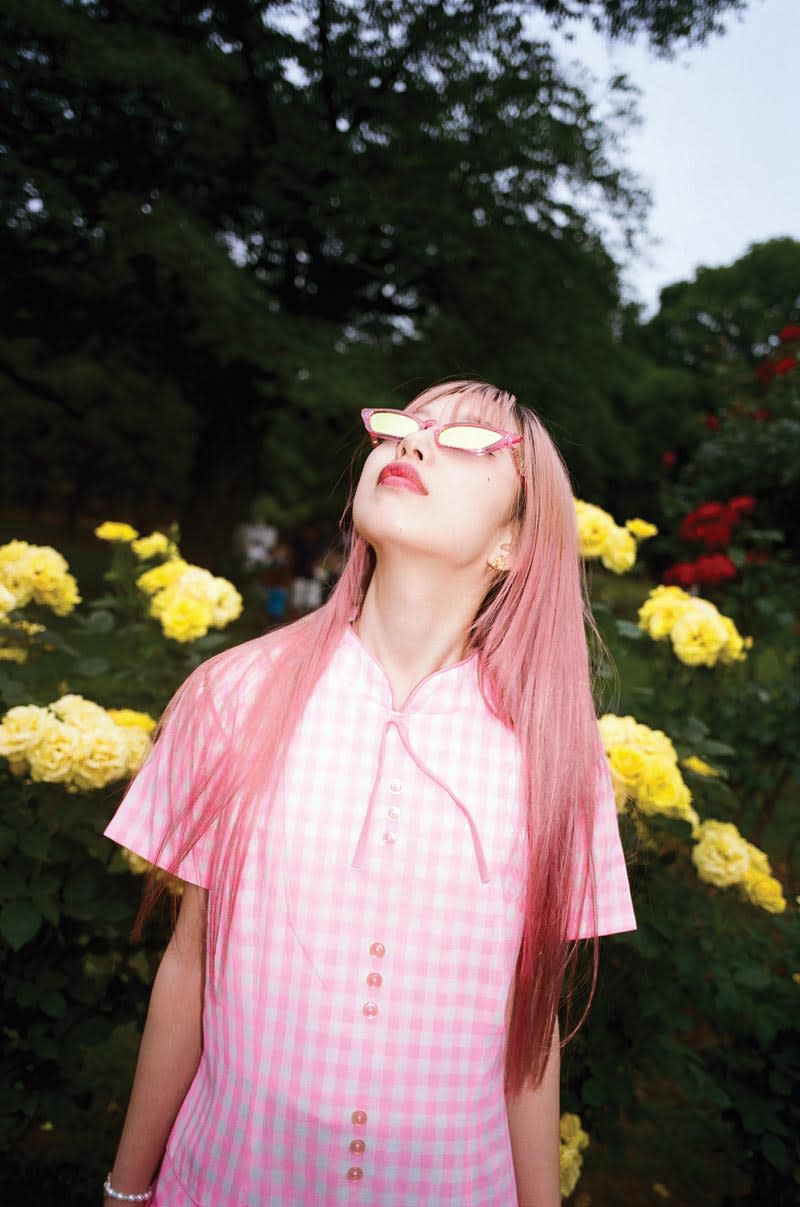
And we're in the middle of some of the most important conversations of our lifetime and brands are now expected to fall on a side to say something and to stand for something which I think hasn't always been the case. But you’ve never shied from your personal beliefs as the beliefs you’ve put in place for the brand, right?
I don’t know what moment it was, but I just knew immediately once I started making my bags that I didn’t want to use leather. I’m not a vegetarian or vegan, I just really love animals and the idea of capitalising on them for profit didn’t sit well with me. So everything had to be cruelty free and non-leather.
Shortly after that, I realised that ‘cruelty free’ also needed to cover the people who work on those pieces too. So we ethically audit our factories with a third-party auditor every year. They make sure everyone is paid a fair living wage, the workplace is safe environment and are able to form unions. It’s an incredibly intricate system but you have to do it. Every brand has to do their bit and make sure they know where their products are coming from. I go to the factories myself a couple of times a year. Two of them are family run, like matriarchally run by these beautiful women supported by their sons. Working with smaller factories and smaller runs also helps us not be wasteful and making stuff you can’t afford to sell.
Sustainability becomes a natural part of this conversation. How can you be sustainable while running your business?
I was talking about this recently with an expert on sustainability. I was like ‘I wish there is more we could do’ but they pointed out a few things I hadn’t thought of that we were already doing in the basket of sustainability. For example, we don’t produce seasonal collections, we just produce styles as we want to or need to or as the market demands them. So while I’m always making stuff it’s not like ‘oh shit I’ve got to make 60 new products for summer’. It’s more around ‘OK well these two sunglasses did quite well so let’s do a different version of them next month.
On top of that we rarely do sales. We do flash sales maybe once or twice per year, then things go back to full price. I really love the idea of buying something and then two or three years later it’s not ‘last season’. That piece is still being sold for the price you bought it for, and other people are still buying it. The idea that something is out of season or not cool anymore doesn’t sit with me.
Even from a financial point of view it’s wasteful. We pretty much only sell on our own store, because on other stores we would see product go on the shelves for two months before it was reduced. It just cheapens everything. Even from a creative perspective it makes it harder to put something out there when you know it’s been slashed.
How can you expect people to forge an emotional connection to something when it’s labelled as old news?
Exactly. Even with end-of-season sales, I hate that shit. When we do work with retailers we put it into our sales terms that we don’t want our products on sale. Again, going back to expensive mistakes, we worked with a large retailer who came in with huge orders, but there is so much stock that we knew was going to end up on sale. So we asked them to take the order down to a quarter of that, and then do reorders.
The next step is to abolish single-use plastics by 2020 but there are still two elements I need to find a non-plastic alternative for. I’m trying to get rid of them by the end of the year. We use recycled paper and card and we’ve started using a fabric called RPET (recycled post consumer plastic), which is spun from used plastic bottles that would otherwise go into landfill. The technology is good but not luxurious enough to go outside the bag, so we line around 90% of our bags in it.
We also have our sleeves made from an eco-plastic that breaks down in 6-12 months in compost situations.
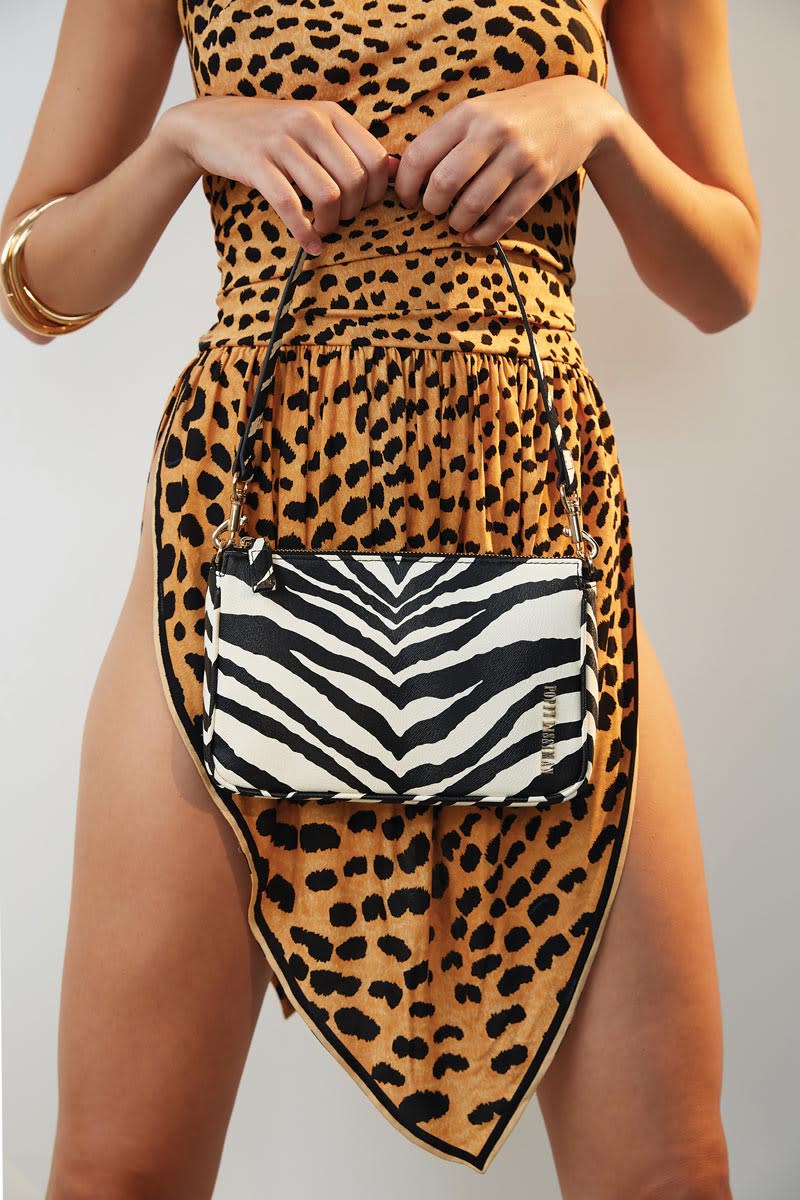
Would you say the brand is synonymous with sunglasses now?
Outside of Australia, yes. Inside of Australia, bags sell better. I think overseas the success of the sunglasses is via the celebrities who have worn them. I’ve been to three fashion weeks and had all my bags there and people were like ‘oh, you do bags now?’ which I always find funny because I’ve been making them longer than I’ve been doing eyewear.
I suppose it’s the celebrities. Maybe you can’t help it. Knowing you so intimately makes me deeply affected by the famous people wearing them.
Yeah, it's weird. I'm totally unaffected by it. I just, I don't find the celebrity thing interesting at all. Not that it doesn’t sit well with me or anything, I just don’t get that excited about it.
I know you’ve got some repeat collaborators and people you like to work with on content and styling. Can you talk about your approach to that?
Since I moved to Sydney (where it's a lot easier for me to shoot more frequently) I made the decision to try and work with all-female teams as often as possible. There is such an incredible pool of really talented women that you’d be crazy not to constantly work with them. It’s pretty rare we have a guy on set these these days.
It also translates to the style that I like. I’ve done a few shoots in the past working with some great guys, but they tend to want to see more skin or add a sexual tone to the shoot which is not the vibe we want to go for—it just doesn’t make sense when you’re trying to sell a nylon camera bag. So it’s about being more sensitive to what women want to see and how they want to see a product sold to them.
Yeah absolutely. I think that feels like a nice way to end this conversation. Thankyou and talk soon!
Thankyou!